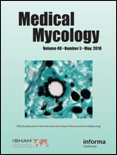
MEDICAL MYCOLOGY
Scope & Guideline
Transforming Understanding of Mycological Diseases
Introduction
Aims and Scopes
- Fungal Pathogenesis and Host Interaction:
Research on the mechanisms by which fungi cause disease, including their interactions with the host immune system, cellular responses, and virulence factors. - Epidemiology of Fungal Infections:
Investigating the distribution, determinants, and dynamics of fungal infections globally, with a focus on emerging and re-emerging pathogens. - Antifungal Resistance and Drug Development:
Studies addressing the mechanisms of antifungal resistance, susceptibility testing, and the development of new antifungal agents and therapeutic strategies. - Clinical Management of Fungal Diseases:
Research on clinical outcomes, treatment options, and management strategies for various fungal infections, including case studies and large cohort analyses. - Diagnostic Innovations:
Advancements in diagnostic techniques for fungal infections, including molecular methods, serological tests, and the development of rapid diagnostic tools. - Mycology in Animal Health:
Exploration of fungal diseases affecting animals, their zoonotic potential, and the implications for public health. - Environmental Mycology:
Research on the role of environmental fungi in human health, including their implications in allergies, asthma, and other respiratory diseases.
Trending and Emerging
- COVID-19-Associated Fungal Infections:
Research on the rise of fungal infections related to COVID-19, particularly mucormycosis and candidemia, has surged, highlighting the intersection of viral and fungal diseases. - Molecular Epidemiology and Genotyping:
There is a growing trend towards using molecular techniques for the epidemiological study of fungal pathogens, focusing on genetic diversity, strain typing, and tracking outbreaks. - Fungal Biofilms and Resistance Mechanisms:
An increasing number of studies are addressing the formation of biofilms by fungal pathogens and their implications for treatment resistance, particularly in candidiasis. - Novel Antifungal Compounds and Therapies:
Research into new antifungal agents, including novel compounds and combination therapies, is on the rise, reflecting the urgent need to combat resistant fungal strains. - Fungal Immunology and Vaccine Development:
Emerging interest in understanding host immune responses to fungal infections and the potential for vaccine development is becoming a prominent area of research. - Zoonotic Fungal Infections:
Research on zoonotic fungi and their implications for human health is gaining attention, particularly in the context of environmental changes and animal health.
Declining or Waning
- Traditional Antifungal Therapies:
There has been a noticeable shift towards exploring new antifungal compounds and strategies, leading to less emphasis on established therapies, such as polyenes and older azoles. - Basic Mycological Taxonomy:
Research focused solely on the taxonomy of fungi without direct clinical implications has decreased, as the journal increasingly prioritizes studies with direct relevance to human health. - Invasive Fungal Infections in Non-Immunocompromised Hosts:
The focus on invasive fungal infections in generally healthy individuals is waning, reflecting a growing emphasis on immunocompromised populations and patients with comorbidities. - Fungal Ecology without Clinical Context:
Studies exploring fungal ecology that do not connect findings to clinical outcomes or implications for health are becoming less common in the journal.
Similar Journals
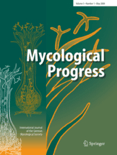
MYCOLOGICAL PROGRESS
Advancing fungal research for a sustainable future.MYCOLOGICAL PROGRESS, published by SPRINGER HEIDELBERG, is an esteemed journal dedicated to advancing the field of mycology and associated biological disciplines. With an ISSN of 1617-416X and an E-ISSN of 1861-8952, this journal has established itself as a leading source of high-quality research, evidenced by its impressive rankings in the Q1 quartile across various categories such as Agricultural and Biological Sciences, Ecology, and Plant Science. As of 2023, MYCOLOGICAL PROGRESS ranks 37 out of 193 in Agricultural and Biological Sciences (miscellaneous) and 183 out of 721 in Ecology, demonstrating its significant impact in the ecosystem of scientific literature. This journal not only aims to disseminate innovative research findings but also strives to foster interdisciplinary collaboration among scientists, ecologists, and agriculturists around the globe. While retaining a traditional model of publication, MYCOLOGICAL PROGRESS remains crucial for those seeking to deepen their understanding of fungal biology and its broader environmental implications.
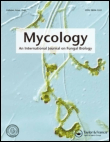
Mycology-An International Journal On Fungal Biology
Innovating Insights into Fungal ScienceMycology: An International Journal on Fungal Biology, published by Taylor & Francis Ltd, stands at the forefront of fungal research, facilitating the dissemination of knowledge across the diverse fields of infectious diseases, microbiology, and plant science. Established as an Open Access journal since 2010, it offers researchers free and immediate access to high-quality articles that advance our understanding of fungal biology and its applications. With a commendable ranking in Q2 for Infectious Diseases and Microbiology, and Q1 for Plant Science as of 2023, it positions itself as a vital resource for the global scientific community. The journal, conveniently located in the United Kingdom, is committed to publishing rigorous research that stimulates discussion and fosters collaboration among academics, practitioners, and students alike. By providing a platform for innovative studies and critical reviews, Mycology continues to play an essential role in unraveling the complexities of fungal organisms and their profound implications in health, agriculture, and ecosystem dynamics.
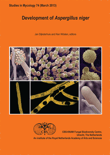
STUDIES IN MYCOLOGY
Unraveling the Mysteries of Fungi and Their EcosystemsSTUDIES IN MYCOLOGY is a premier journal dedicated to advancing research in the field of mycology, published by the renowned WESTERDIJK FUNGAL BIODIVERSITY INSTITUTE. With an impact factor that places it in the top quartile (Q1) of both Agricultural and Biological Sciences and Plant Science categories, it holds a prestigious position in the scientific community, ranking #1 out of 193 in its field as per Scopus metrics. Since its transition to Open Access in 2008, it has made significant strides in disseminating high-quality research widely, fostering a greater understanding of fungal biodiversity and its ecological impact. Covering a broad spectrum of topics related to mycology, the journal aims to provide researchers, professionals, and students with a platform for sharing innovative findings, stimulating academic discourse, and promoting collaborative efforts within this vital area of study. Hailing from the Netherlands, STUDIES IN MYCOLOGY serves as an invaluable resource for exploring the complexities of fungi, their interactions with various ecosystems, and their practical applications in agriculture and beyond.

FUNGAL DIVERSITY
Diving Deep into Fungal Ecosystems and EvolutionFungal Diversity is a premier academic journal dedicated to advancing the science of mycology, encompassing ecological, evolutionary, and biological research involving fungi. Published by Springer, this journal has established a significant presence in the academic community since its inception in 1998, and it continues to thrive with a convergence period extending to 2024. Holding a prestigious Q1 ranking in several categories — including Ecology, Ecology, Evolution, Behavior and Systematics, and Plant Science — Fungal Diversity showcases cutting-edge research that influences ecological management, conservation, and biodiversity studies. With its notable positions in Scopus rankings, including being ranked #1 in Environmental Science - Ecology, the journal serves as an essential resource for researchers, professionals, and students interested in the complex interplay between fungi and their environments. Although it does not currently offer open access, interested readers can benefit from the journal's rich repository of peer-reviewed articles, making Fungal Diversity a vital component of the scientific literature landscape.
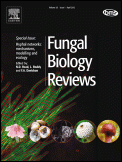
Fungal Biology Reviews
Exploring the Depths of Fungal ScienceFungal Biology Reviews is a premier academic journal published by Elsevier Science Ltd, focusing on the rapidly evolving field of fungal biology. With an ISSN of 1749-4613 and an E-ISSN of 1878-0253, this journal has established itself as a leading resource for researchers, academics, and professionals dedicated to advancing our understanding of fungi and their ecological, agricultural, and medical implications. As a testament to its impact and quality, Fungal Biology Reviews holds a distinguished Q1 classification in both Microbiology and Plant Science categories for 2023, with a notable rank of 26 out of 182 in the Microbiology category. The journal uniquely blends comprehensive reviews that synthesize current research findings with forward-looking perspectives that pave the way for future studies, making it indispensable for anyone involved in fungal research. Although it operates under a traditional access model, its commitment to fostering impactful scholarship ensures that it remains relevant and widely cited within the academic community. Spanning from its inception in 2007 through to its projected conclusion in 2024, Fungal Biology Reviews continues to shape the framework for future discoveries in fungal biology.
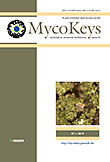
MycoKeys
Unlocking the secrets of fungi for ecological innovation.MycoKeys, published by PENSOFT PUBLISHERS, is a leading open-access journal dedicated to advancing the understanding of fungal biology and its diverse implications within agricultural, ecological, and biological sciences. With its ISSN 1314-4057 and E-ISSN 1314-4049, this journal has achieved remarkable academic prestige, reflected in its 2023 Scopus rankings placing it in the first quartile (Q1) across several categories, including Agricultural and Biological Sciences (miscellaneous), Ecology, Evolution, Behavior and Systematics, and Plant Science. MycoKeys provides a platform for researchers, professionals, and students interested in the latest findings and methodologies regarding fungi, their environments, and their interactions within various ecosystems. Since its transition to open access in 2011, the journal has championed the dissemination of high-quality research to a global audience, fostering collaboration and innovation in mycology. With a publishing history that converges from 2015 to 2024, MycoKeys remains a vital resource for those committed to exploring the multifaceted roles fungi play in our world.
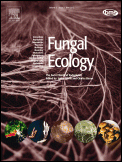
Fungal Ecology
Unveiling the Ecological Significance of FungiFungal Ecology, published by Elsevier Science Ltd, is a leading international journal dedicated to the exploration and advancement of our understanding of fungal biology and its ecological significance. With an impressive impact factor and recognized in the second quartile (Q2) across various categories such as Ecological Modeling, Ecology, Ecology, Evolution, Behavior and Systematics, and Plant Science, this journal offers a critical platform for researchers and professionals to disseminate and discuss innovations in fungal ecology. Since its inception in 2008, the journal has built a solid reputation, particularly highlighted by its impressive Scopus rankings, including a top percentile status in ecological fields. Researchers are encouraged to submit their findings that contribute to the understanding of the ecological roles of fungi, their interactions within ecosystems, and their applications in environmental science. Although the journal does not offer open access, it remains a vital resource for academics and practitioners aiming to stay ahead in the rapidly evolving fields of fungal research and ecology. Located in the vibrant heart of the Netherlands, the journal continues to foster scholarly engagement and collaboration among scientists globally.
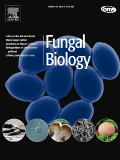
Fungal Biology
Exploring the Intricacies of Fungal LifeFungal Biology, published by Elsevier Science Ltd, is a premier journal dedicated to advancing the field of mycology and its interdisciplinary applications. With an ISSN of 1878-6146 and E-ISSN 1878-6162, this journal serves as a vital platform for researchers and professionals interested in the ecological, evolutionary, and genetic aspects of fungi, as well as their implications in infectious diseases and plant sciences. As of 2023, it proudly holds a Q2 ranking in Ecology, Evolution, Behavior and Systematics and Plant Science, and a Q3 ranking in Genetics and Infectious Diseases, highlighting its significant contribution to these domains. The journal boasts an impressive Scopus rank, including a percentile of 83rd in Ecological studies, ensuring that published research reaches a wide audience and impacts ongoing discourse in the field. With open access options, Fungal Biology encourages the dissemination of high-quality research, aimed to foster collaboration and innovation among scholars and practitioners. With its convergence of knowledge from 2010 to 2024, this journal is instrumental for those advancing the understanding of fungal biology and its myriad applications in environmental and health sciences.
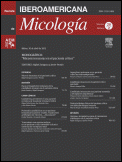
REVISTA IBEROAMERICANA DE MICOLOGIA
Elevating Knowledge in Fungal Studies and PathologyREVISTA IBEROAMERICANA DE MICOLOGIA, published by the ASOCIACION ESPANOLA MICOLOGIA-AEM, is a vital resource for those engaged in the study of mycology and infectious diseases. With a history spanning from 1996 to 2024, this journal is committed to advancing knowledge in the field through the dissemination of high-quality research articles, reviews, and case studies. Although it currently features a Q3 ranking in Infectious Diseases and a Q4 ranking in Microbiology for 2023, its impact is significant given the niche focus it serves, catering to a specialized audience of researchers and practitioners. While access is not open, the journal continues to be a preferred platform for scholarly communication among professionals in Spain and beyond. The editorial office, located in Bilbao, serves as the hub for rigorous peer-review and publication processes, ensuring that the latest advancements and findings in the field of mycology are effectively shared within the scientific community.
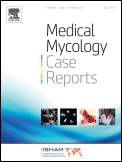
Medical Mycology Case Reports
Transforming clinical findings into impactful research narratives.Medical Mycology Case Reports, published by Elsevier, is a pivotal journal dedicated to advancing the field of mycology through the presentation of case reports that highlight clinical findings, diagnostic challenges, and treatment outcomes associated with fungal infections. With its ISSN 2211-7539 and E-ISSN 2211-7539, this open-access journal has been serving the global community since 2012, allowing unrestricted access to its valuable insights. Situated in the Netherlands, specifically at RADARWEG 29, AMSTERDAM, this journal has gained recognition in areas such as Infectious Diseases (ranked Q3) and Microbiology (ranked Q4) as of 2023. Its commitment to disseminating high-quality research is reflected in its Scopus rankings, which place it at the 51st percentile in Medicine and the 32nd percentile in Immunology and Microbiology. By bridging the gap between clinical cases and academic research, Medical Mycology Case Reports plays a crucial role in enriching the knowledge base of practitioners and researchers alike, ultimately contributing to improved patient management and public health.